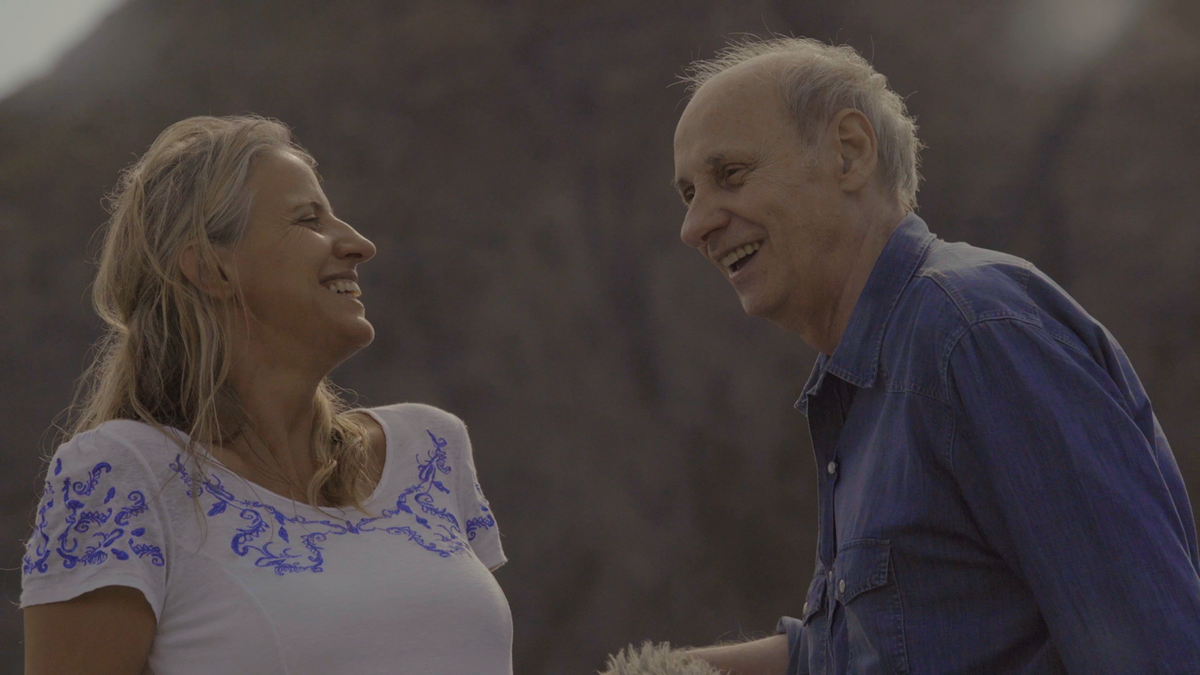“Maratón is a work by Ricardo Monti that hurts today. It shows a group of people who are dancing in an eternal marathon from which they cannot escape and compete for a prize they do not know what it is. “It is an allegory of our present,” says Bernarda Pagés, who devised the Mundo Monti Festival, a tribute to the 80th anniversary of the birth of the great Argentine playwright, writer and teacher.
The festival was declared of interest by the Porteña Legislature and opens today at 9 p.m. at the Cervantes National Theater with the presentation of the book “A poetics of freedom. Dialogues with Ricardo Monti”, in which the playwright shares the creative process of each of his theatrical pieces; and the semi-edited version of his latest work, the opera “Zanni”, with music by the conductor Lucio Bruno Videla.
Tomorrow from 12 to 14 there will be a private screening of the documentary “The creation” in the DAC, Argentine Film Directors; on the 15th at 6pm at the Paco Urondo Cultural Center, Mauricio Kartun and Maria Marullwill give an open talk in which they will share anecdotes and reflections about their endearing friendship and experience as disciples and friends of Ricardo Monti.
On the 17th at 7 p.m., the Gaumont Cinema will host the official premiere of the documentary “The Creation”, declared of interest by the INCAA, in which Monti runs through his life. On Friday the 18th at 8pm the festival will close at the Teatro Argentino in La Plata with the participation of Rita Cortese.
Within the framework of the festival, the first edition of the “Ricardo Monti National Playwriting Competition”, supported by Argentores, Proteatro and the Sagai Foundation, aimed at students and graduates of the drama courses of the National University of the Arts (UNA), the Paco Urondo University Cultural Center (FFYL UBA) and the Metropolitan School of Dramatic Art ( EMAD). The juries will be Rubén Szuchmacher, María Marull and Enrique Papatino. We talk with Bernarda Pagés, author of the book and organizer of the festival.
Journalist: What is the first thing you can say about Ricardo Monti?
BP: I met three Ricardos. I had my teacher, with whom I trained as a writer and who helped me find my own voice, I miss him very much. When we started filming the documentary, another Ricardo appeared, we traveled with him and we got to know each other better. And the last three years he gave me his time and I met another Monti. This festival is giving to the world what it gave to me. Ricardo was a child who was fascinated with the world, he was a great observer, he was funny, fun, obsessive with trivial things. He had one foot on the earth and another in creation. When you entered into dialogue with Ricardo, time and space ceased to exist. The richness was so great, so much what he had to say, that you got into the flow of the river.
unnamed (2).jpg
Q: What turning point did Monti mark in local dramaturgy?
BP: It is a before and after on the Argentine national scene. When he started teaching dramaturgy classes he had to explain that it was about writing theater, the word was not installed. He brought the main concept of the generating image that triggers ideas for a script. The image generates action and has conflict, it is diving into the palette of images. His disciples like Kartun or Daulte later used it for their works and to teach it. Monti first wrote narrative and could not write theater, it was a great frustration for him until he discovered these images.
Q: How does Monti work, what inspired him, what was his method?
BP: I wrote this book with Monti for a year, I would go to his house, we would have tea and cake, we would chat until it got dark, we would turn on the lights and continue. This book covers in order how he created his works. Discover how the author grows and builds his process as an artist. One thinks that there is a method but Ricardo demonstrates in the book how each work had a different starting point, all the works were written at the same time. He created all his works throughout his life, from the age of 8. His novel, The Creation, was written over 30 years. He told me if you are faithful to the images that belong to that universe, there is no problem in writing over the years, you leave the available images there, they come back and they are the same, as long as you respect them, even if you don’t understand them. . You have to put your ego aside and dedicate yourself to the work.
Q: What work by Monti do you highlight?
BP: I read all his works in order and then the novel, and I am doing the “working progress” of his posthumous work, which is an opera. It has a very clear aesthetic conception, it is as if he had premeditated it, which he did not do, but in the whole there is a logic that was not sought beforehand. He was clear about where he wanted to go. There is an impressive circularity, and common features such as the theater within the theater, where one does not know if it is serious or playing, there is a universality in time and space. His works have a fierce relevance. I called him the Argentine Shakespeare and he joked that they were going to discover him in a hundred years. I like “Visita,” a very metaphysical work, where life and death are on a perceptible threshold, you don’t know who is alive and who is dead, like “Life is a Dream.”
Q: How do you see the new playwrights?
BP: Theater lit up after the pandemic, especially independent theater. There is a thirst for theater. Beyond the conditions of competitions or support that do not exist, it is a very good time, there are great trainers of playwrights, schools and teachers have enormous commitment. You don’t teach how to write, you are a great writer and you transmit experience, that’s what we have and it’s enormous.
Source: Ambito
David William is a talented author who has made a name for himself in the world of writing. He is a professional author who writes on a wide range of topics, from general interest to opinion news. David is currently working as a writer at 24 hours worlds where he brings his unique perspective and in-depth research to his articles, making them both informative and engaging.




